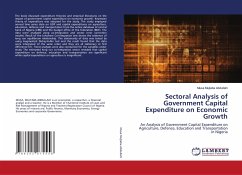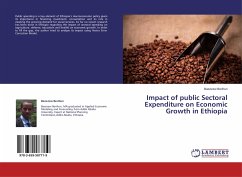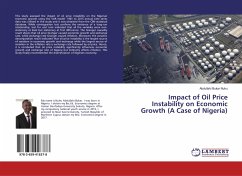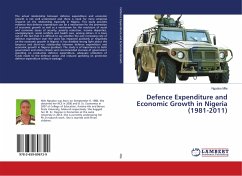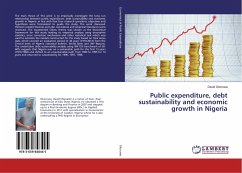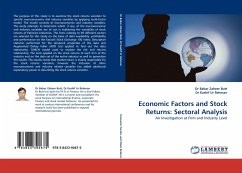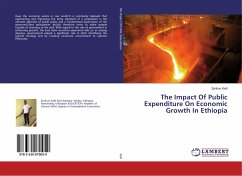The book discussed expenditure theories and empirical literatures on the impact of government capital expenditure on economic growth. Keynesian theory of expenditure was adopted for the study. The study employed annual time series data on GDP and capital expenditures on agriculture, education, defence and transportation from the online database of central bank of Nigeria (CBN) and the budget office of the federation (BOF). The data were analyzed using co-integration and vector error correction models. Result of the Johansen Co-integration test shows the existence of long run equilibrium relationship. The stationarity of data was tested by using Augmented Dickey-Fuller test and the result found that the data were integrated of the same order and they are all stationary at first difference I(1). Trend analyses were also conducted for the variables under study. The estimated long run co-integration vector revealed that capital expenditure on defence, education and transportation aresignificant while capital expenditure on agriculture is insignificant.
Bitte wählen Sie Ihr Anliegen aus.
Rechnungen
Retourenschein anfordern
Bestellstatus
Storno

